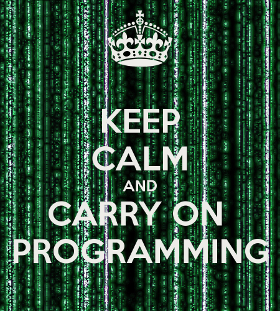Computer Programming
Program
A computer program or app is a sequence of instructions, written to perform a specified task on a computer. A computer requires programs to function, typically executing the program's instructions in a central processor.
It is step by step process instructions that directs the computer to do the tasks you want it to do and produce the results you want.
The programming Process
Defining the problem
A computer program or app is a sequence of instructions, written to perform a specified task on a computer. A computer requires programs to function, typically executing the program's instructions in a central processor.
It is step by step process instructions that directs the computer to do the tasks you want it to do and produce the results you want.
The programming Process
Defining the problem
In almost every problem solving methodology the first step is defining or identifying the problem. It is the most difficult and the most important of all the steps.
what it is you know (input-given data) and what it is you want to obtain (output-the resul
Planning the solution
what it is you know (input-given data) and what it is you want to obtain (output-the resul
Planning Solutions provides expert advice and representation in all aspects of urban and regional planning.
Planning the solution by using the flowchart and pseudo code.
Coding the program
express your solution in a programming language. You will translate the logic from the flowchart or pseudo code-or some other tool-to a programming language.
Testing the program
various inputs and documenting what you have done.most programmers get used to the idea that their newly written programs probably have a few errors.
Documenting the program
necessary process, although, as many programmers are, you may be eager to pursue more exciting computer-centered activities.
Levels
of Language
Machine
language
Machine code or machine language is a set of instructions executed directly by a computer's central processing unit (CPU). Each instruction performs a very specific task, such as a load, a jump, or an ALU operation on a unit of data in a CPU register or memory.
Assembly languages
An assembly language (or assembler language) is a low-level programming language for a computer, or other programmable device, in which there is a very strong (generally one-to-one) correspondence between the language and the architecture's machine code instructions.
High-level
languages
Ultimately, programs written in a high-level language must be translated into machine language by a compiler or interpreter. The firsthigh-level programming languages were designed in the 1950s. Now there are dozens of different languages, including Ada, Algol, BASIC, COBOL, C, C++, FORTRAN, LISP, Pascal, and Prolog.
Very high-level languages
A very high-level programming language (VHLL) is a programming language with a very high level of abstraction, used primarily as a professional programmer ...
Natural languages
Natural languages
In computing, natural language refers to a human language such as English, Russian, German, or Japanese as distinct from the typically artificial command or programming language with which one usually talks to a computer. The term usually refers to a written language but might also apply to spoken language.
Flowchart and Pseudo code
Write a program that reads two numbers and displays the numbers in decreasing order
Algorithm
-a step-by-step procedure for solving a problem.An algorithm (pronounced AL-go-rith-um) is a procedure or formula for solving a problem. The word derives from the name of the mathematician,
Flowchart
Write a program that reads two numbers and displays the numbers in decreasing order
Algorithm
-a step-by-step procedure for solving a problem.An algorithm (pronounced AL-go-rith-um) is a procedure or formula for solving a problem. The word derives from the name of the mathematician,
Flowchart
A flowchart is a type of diagram that represents an algorithm, workflow or process, showing the steps as boxes of various kinds, and their order by connecting them with arrows. This diagrammatic representation illustrates a solution model to a given problem.
a picture of the separate steps of a process in sequential order.

No comments:
Post a Comment